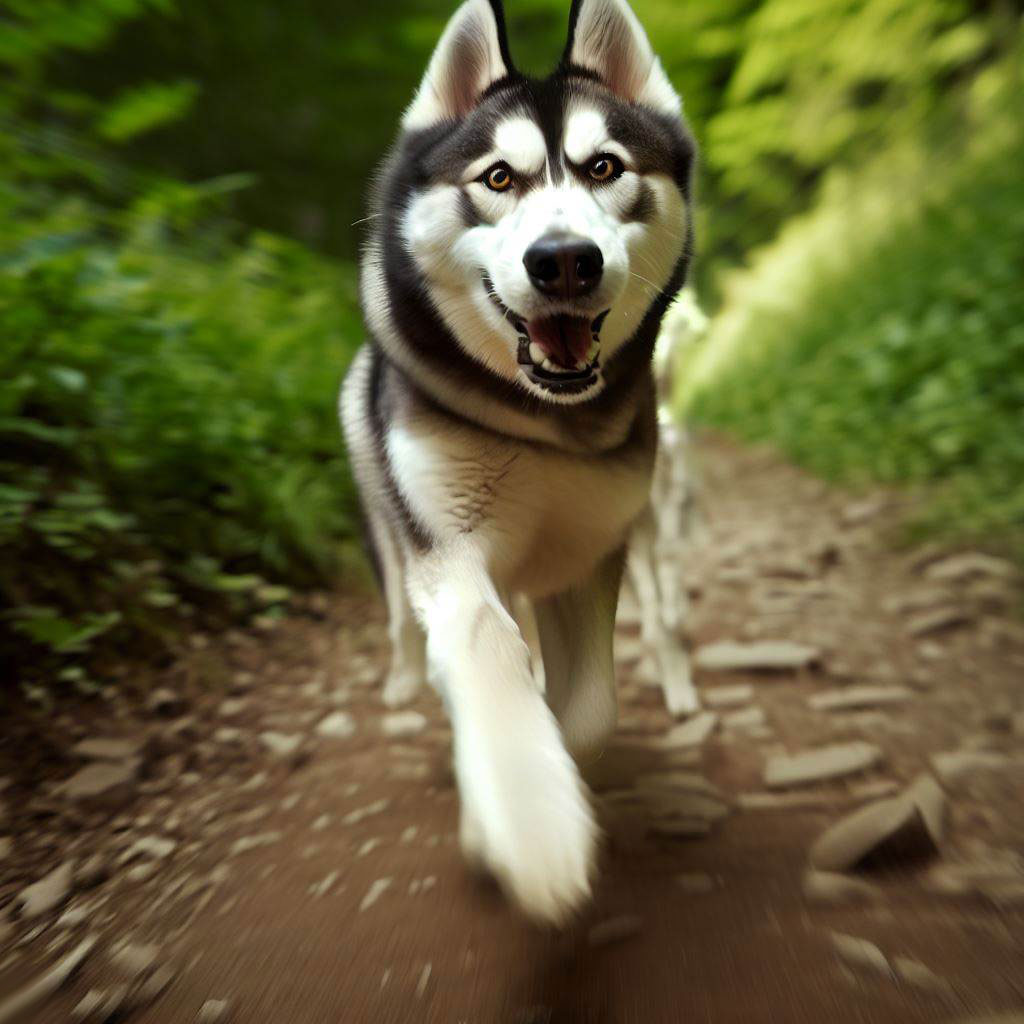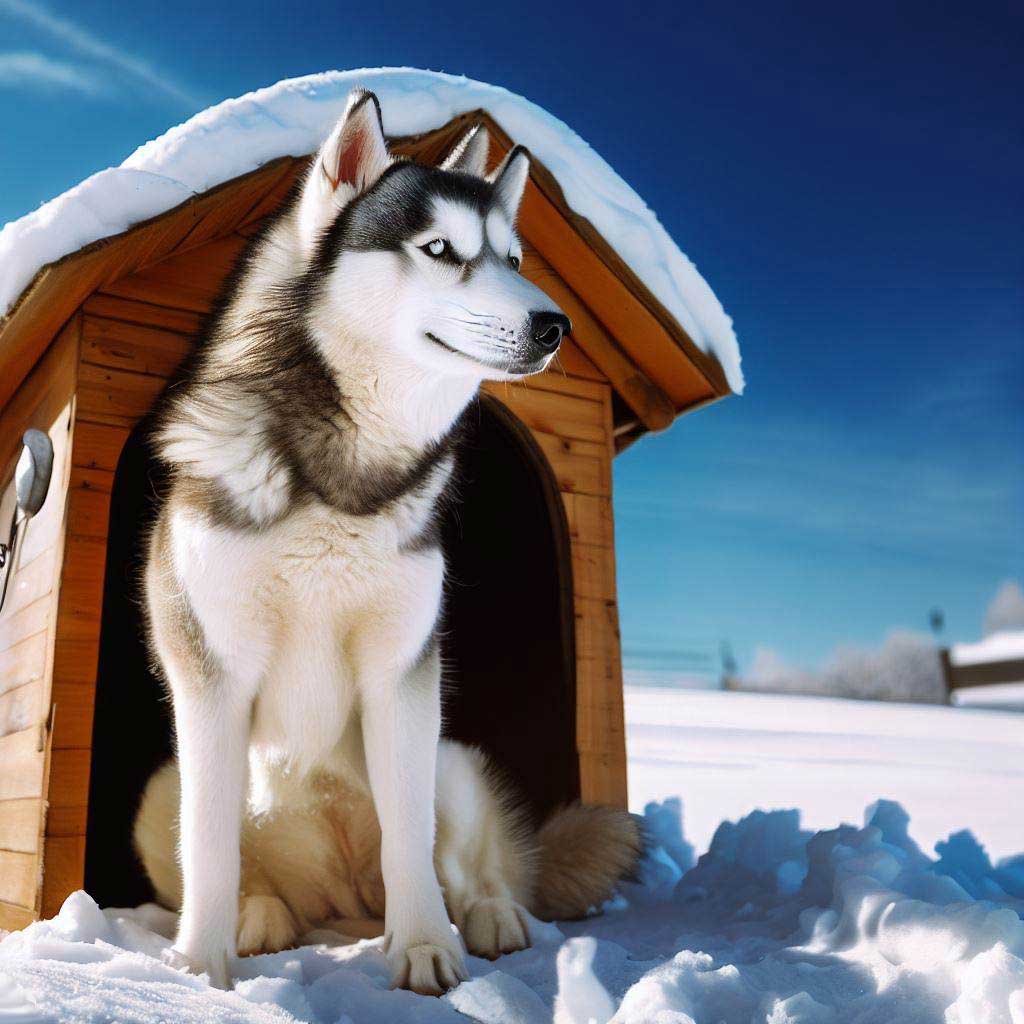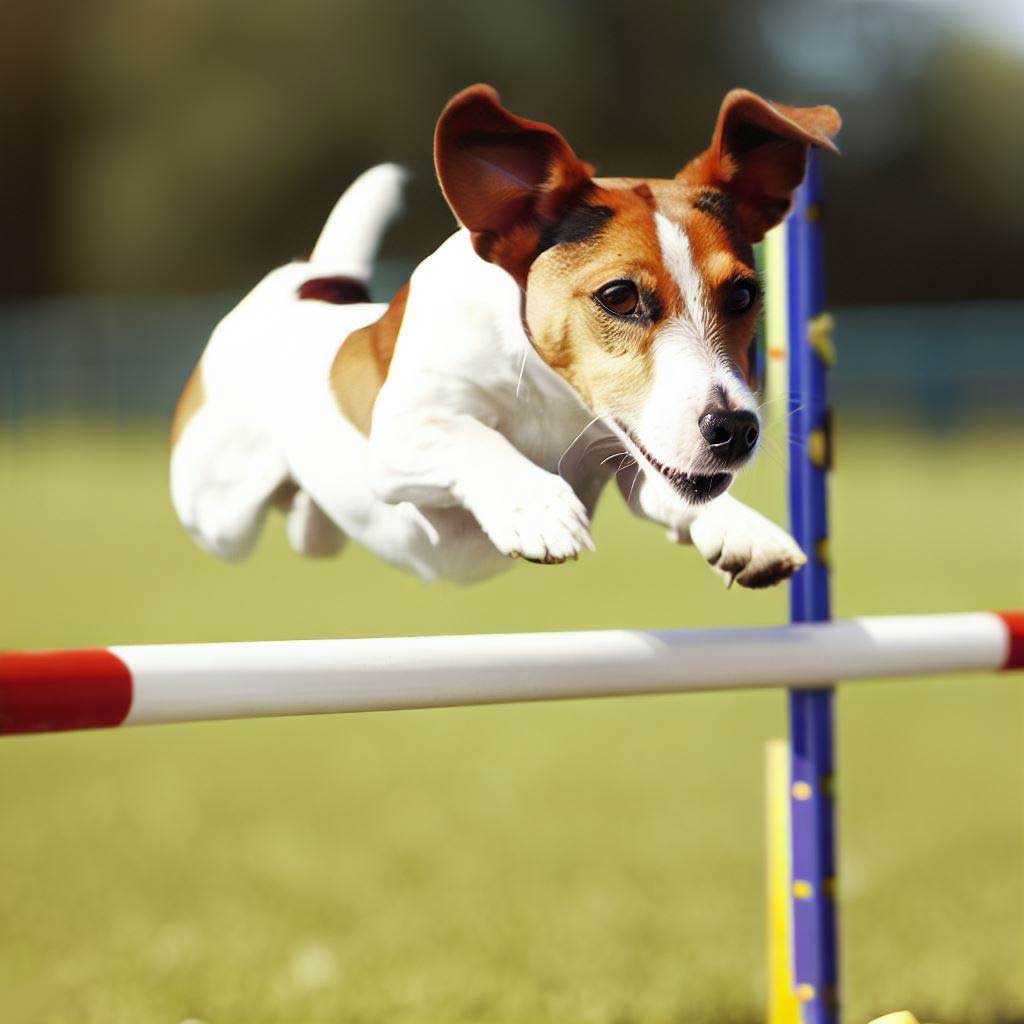Discover the best dogs for hiking with our expert guide on the Top 13 Breeds, training tips, and essential gear for trail adventures.
Table of Contents
What Are the Best Dog Breeds For Hiking?
Hiking is a delightful way to connect with nature, and who better to share it with than your furry friend? Working out the best dog breeds for hiking amplifies this joy by adding companionship and excitement to your journey. Selecting the right breed is crucial, as not all dogs are created equal when it comes to any activity such as hiking, dog sports, camping, running and many other outdoor adventures. In this guide, we’ll explore the 13 best dogs for hiking, each chosen for their unique qualities that make them ideal hiking companions. But before hitting the trails, understanding the importance of training and the right equipment is key to a safe and enjoyable experience.
Characteristics of a Great Hiking Dog Breed
Endurance and Stamina
When it comes to identifying the best dogs for hiking, endurance and stamina rank at the top of the list. A good hiking dog must have the physical capability to withstand long distances and varying terrains. Breeds like the Labrador Retriever and Siberian Husky, well-known for their endurance, make excellent companions for long hikes.
Trainability
A trainable dog is essential when hiking. Obedience to commands ensures safety for both the dog and other hikers. Breeds like the Australian Shepherd and German Shepherd shine in this area. These breeds are known to respond well to training, allowing you to explore even the most challenging trails with confidence.
Size and Weight Considerations
The best dogs for hiking often fall within a specific size and weight range. Too small, and they may struggle with rough terrain; too large, and they may tire quickly. Medium to large breeds often make the best hiking companions, balancing strength and agility. Consideration of size and weight helps in selecting the right breed for your specific hiking needs.
Temperament and Socialization
A well-socialized dog with a balanced temperament adds pleasure to your hiking experience. Dogs that are friendly and adaptable, such as the Golden Retriever, tend to fare well on trails, interacting positively with other hikers and dogs. Additionally, having a dog that’s not overly aggressive or timid helps in navigating unexpected situations that may arise during a hike.
Preparing Your Dog for Hiking
Basic Training Requirements
Before embarking on a hiking adventure with your canine friend, ensure that they have mastered basic commands such as “sit,” “stay,” and “come.” Obedience training is the foundation for a successful hike, allowing you to maintain control in various situations. Even the best dogs for hiking require consistent training to be reliable companions on the trail.
Health Check and Vaccinations
A comprehensive health check is vital before taking your dog hiking. Your veterinarian can assess if your dog is fit for the physical demands of hiking and ensure that all vaccinations are up to date. This preventive measure helps in avoiding potential health issues that could spoil the adventure.
Proper Grooming and Care
Proper grooming is more than just making your dog look good; it’s about keeping them comfortable and healthy on the trail. Regular grooming helps in detecting ticks and other parasites, which can be common in wooded areas. Ensuring your dog’s coat, nails, and pads are in good condition will make the hike enjoyable for both you and your pet.
With thoughtful preparation and understanding of the characteristics that make the best dogs for hiking, you can embark on a memorable journey with your four-legged friend. Whether you’re a seasoned hiker or a beginner looking to explore the great outdoors, selecting the right breed, focusing on training, and ensuring proper care are fundamental steps in creating a fulfilling hiking experience.
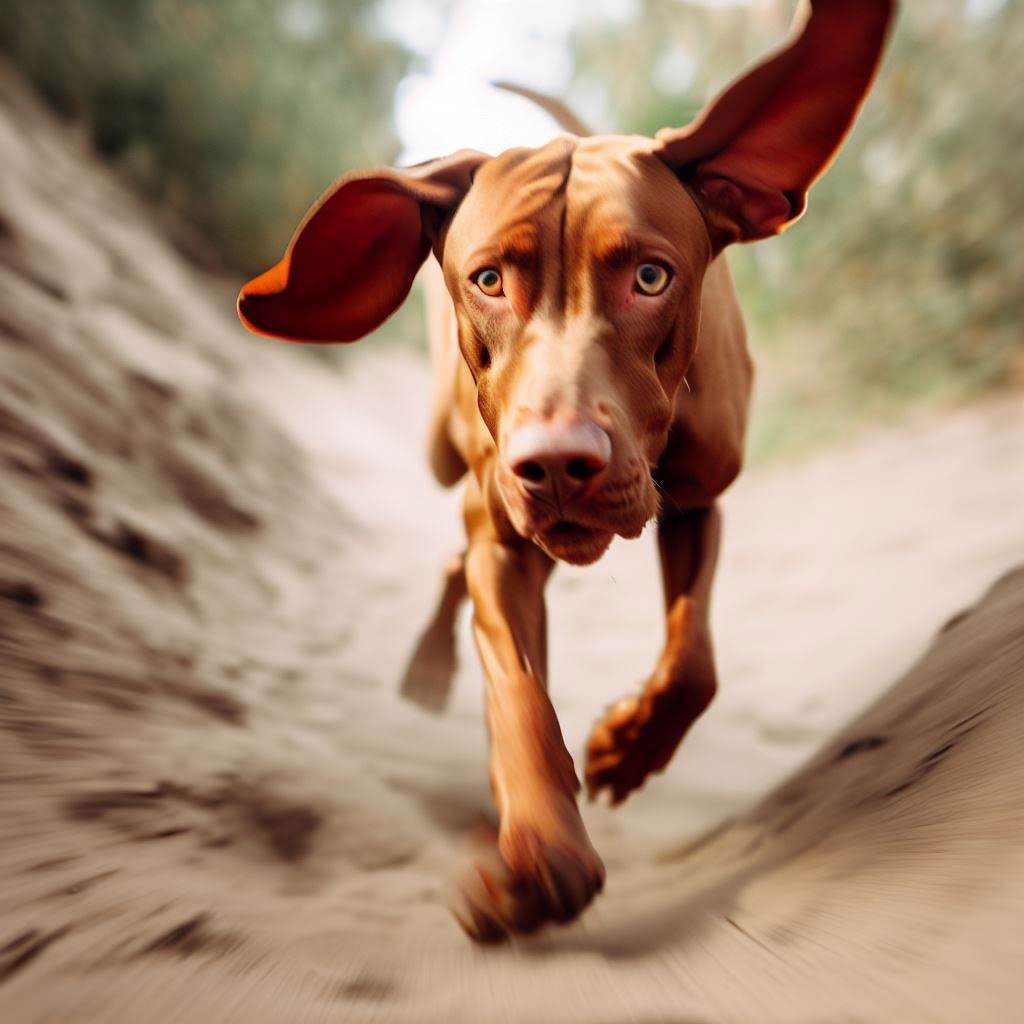
What Are The Top 13 Dogs for Hiking?
1. Labrador Retriever
- Characteristics: Energetic, friendly, strong, and good swimmers. These qualities make Labrador Retrievers among the best dogs for hiking. Their strong physique and love for water allow them to tackle various terrains effortlessly.
- Training tips: Start with basic obedience and gradually introduce them to different terrains. Utilizing rewards and positive reinforcement can create an eager hiking partner.
2. Australian Shepherd
- Characteristics: Intelligent, agile, and highly trainable. Australian Shepherds’ intelligence and agility make them excel in outdoor activities, thus being considered as one of the best dogs for hiking.
- Training tips: Focus on agility training, and consistent positive reinforcement is crucial. This breed thrives on mental and physical challenges, making hiking a perfect exercise.
3. German Shepherd
- Characteristics: Loyal, versatile, and great endurance. German Shepherds are often associated with law enforcement due to these traits, but they also make excellent hiking companions.
- Training tips: Early socialization is key, along with reward-based training techniques. German Shepherds respond well to challenges, so incorporating trail obstacles can keep them engaged.
4. Golden Retriever
- Characteristics: Gentle, eager to please, and possessing great stamina. These beloved dogs are family favorites and are equally adept as hiking partners.
- Training tips: Gentle training methods work best for Golden Retrievers. Persistence in training will form a trustworthy and enthusiastic hiking buddy.
5. Siberian Husky
- Characteristics: Strong, energetic, and resilient in cold weather. Siberian Huskies are bred for endurance, making them one of the best dogs for hiking, especially in cooler climates.
- Training tips: Regular exercise and mental stimulation are key. Training a Husky requires patience and consistency, building up to longer hikes over time.
6. Border Collie
- Characteristics: Highly intelligent, energetic, excellent agility. Border Collies are known for their exceptional intelligence and agility, making them perfect for challenging trails.
- Training tips: Positive reinforcement works wonders, as do agility exercises. Their boundless energy makes them ideal hiking companions when properly trained.
7. Rhodesian Ridgeback
- Characteristics: Strong prey drive, good stamina, loyal. Rhodesian Ridgebacks were bred to hunt lions, translating well into hiking companions with proper training.
- Training tips: Firm but fair training is vital, and consistent commands create trust. This breed’s natural instincts make them exciting but demanding hiking partners.
8. Bernese Mountain Dog
- Characteristics: Strong, calm, excellent in mountainous terrain. Bernese Mountain Dogs are gentle giants and rank high among the best dogs for hiking in mountainous regions.
- Training tips: A gentle approach and early socialization are essential. Their natural affinity for mountains makes them extraordinary hiking companions.
9. Alaskan Malamute
- Characteristics: Robust, great in cold weather, independent. Alaskan Malamutes are built for challenging weather, making them suitable for winter hikes.
- Training tips: Firm leadership and clear boundaries are required. Though independent, Malamutes can be incredible hiking companions with proper training.
10. Rottweiler
- Characteristics: Strong, obedient, and loyal. Rottweilers may seem intimidating, but they can be loyal and loving hiking partners when trained properly.
- Training tips: Early training, socialization, and consistent commands are essential. Rottweilers are powerful and responsive, making them suitable for various hiking experiences.
11. Belgian Malinois
- Characteristics: Highly trainable, energetic, protective. Belgian Malinois are working dogs known for their intelligence, ranking them among the best dogs for hiking.
- Training tips: Challenging physical activities and consistent training are key. Their protective nature also adds a layer of safety on the trail.
12. Standard Poodle
- Characteristics: Intelligent, agile, good swimmers. Don’t let their appearance fool you; Standard Poodles are athletic and eager learners, suitable for hiking adventures.
- Training tips: Mental stimulation and varied training routines keep them engaged. Their surprising athleticism makes them exciting hiking partners.
13. Vizsla
- Characteristics: Loyal, affectionate, great stamina. Vizslas are known for their affectionate nature and stamina, attributes that translate well into hiking.
- Training tips: Regular exercise, positive reinforcement, and exposure to various terrains are vital. Building up stamina gradually helps them excel on long trails.
By focusing on each breed’s unique characteristics and offering specific training tips, this guide ensures that you select the right companion for your hiking adventures. Whether you prefer challenging trails or leisurely walks, understanding the best dogs for hiking will enrich your outdoor experiences.
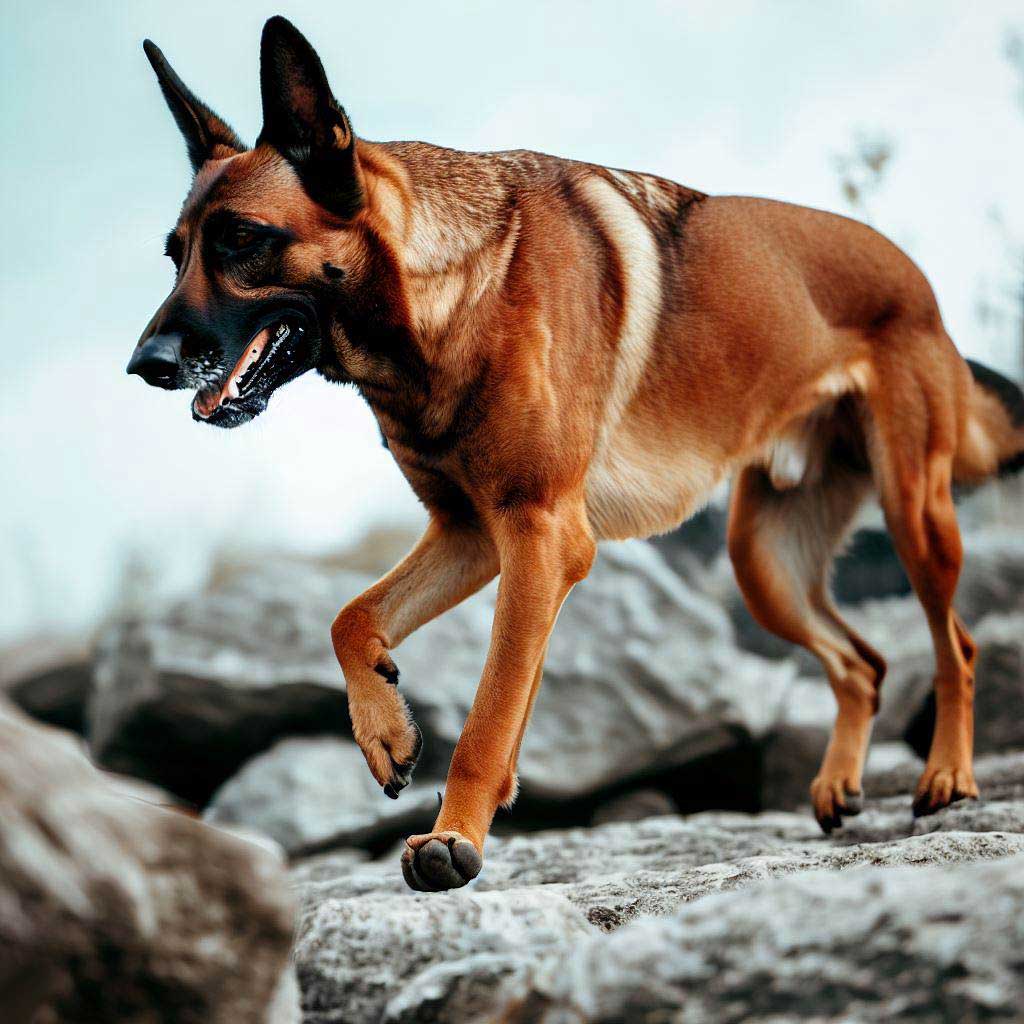
Essential Gear and Supplies
When selecting the best dogs for hiking, your planning doesn’t stop at the breed. Equally vital is ensuring that you have the appropriate gear and supplies for your canine friend. Here’s what you need to pack:
Proper Leashes and Harnesses
Having the right leashes and harnesses is paramount for a safe and enjoyable hiking experience. The best dogs for hiking can still be unpredictable in a new environment.
- Leashes: Choose a leash that allows control without restricting movement. Retractable leashes can be a good option, but make sure it’s strong enough for your dog’s size and weight.
- Harnesses: A comfortable, well-fitting harness that doesn’t chafe is essential. Look for one with padded straps and adjustable sizing. A handle on the back can provide extra control in tricky situations.
Food and Water Containers
Even the best dogs for hiking need sustenance, just like their human counterparts.
- Food Containers: Collapsible bowls are great space savers. Pack enough food for the duration of the hike, and remember a little extra just in case.
- Water Containers: Hydration is crucial for both you and your dog. Bring enough water and a portable, easy-to-use water dish.
First Aid Kit
Accidents happen, and even the best dogs for hiking can fall victim to an unexpected injury.
- Dog-specific items: Include items like tweezers for tick removal, a pet-safe antiseptic, and bandages that adhere to fur.
- General items: Don’t forget the basics like scissors, gauze, and a digital thermometer. Familiarize yourself with common canine injuries and how to treat them.
Dog-Friendly Trail Maps
Not all trails welcome our four-legged friends. Ensure that you have maps or guides that indicate dog-friendly trails.
- Maps: Many trail guides and apps now include information on whether dogs are allowed and any specific restrictions.
- Preparation: Check rules and regulations ahead of time, so you don’t arrive at a trailhead only to find out your furry friend can’t come along.
Hiking Safety and Etiquette
Once you’ve chosen the best dogs for hiking and packed the essentials, it’s time to hit the trails! But don’t forget about safety and etiquette.
Following Trail Rules and Regulations
Every trail has its rules, and adhering to them ensures a positive experience for everyone.
- Leash laws: Even the best dogs for hiking must follow leash laws. Keep your dog on a leash where required to protect both wildlife and other hikers.
- Right of way: Typically, hikers with dogs should yield to those without. Be polite and step aside, keeping your dog under control.
Dealing with Wildlife
Encountering wildlife is part of the hiking experience, and how you handle it is crucial.
- Observation: Enjoy wildlife from a distance. Even the best dogs for hiking can scare or provoke wild animals.
- Control: Keep your dog leashed and calm. If your dog has a strong prey drive, practice commands that ensure they stay close and don’t chase after animals.
Environmental Considerations
Leave no trace should be the mantra for all hikers, especially when bringing along their best dogs for hiking.
- Waste Management: Always pick up after your dog and follow trail guidelines for disposal.
- Respect Vegetation: Keep your dog on the trail to prevent trampling sensitive vegetation and disturbing wildlife habitats.
Emergency Procedures
Even with the best planning, emergencies can happen.
- Know your dog’s limits: Even the best dogs for hiking can overdo it. Monitor their energy and look for signs of fatigue or overheating.
- Have a plan: Know the nearest veterinary emergency service and have a basic first aid kit. Recognize signs of common injuries and illnesses that may require immediate attention.
Preparing for a hike with your canine companion requires thoughtful planning and consideration for both gear and etiquette. When you understand the needs of the best dogs for hiking and the environment you’ll be exploring, you can ensure a memorable and safe experience for all.
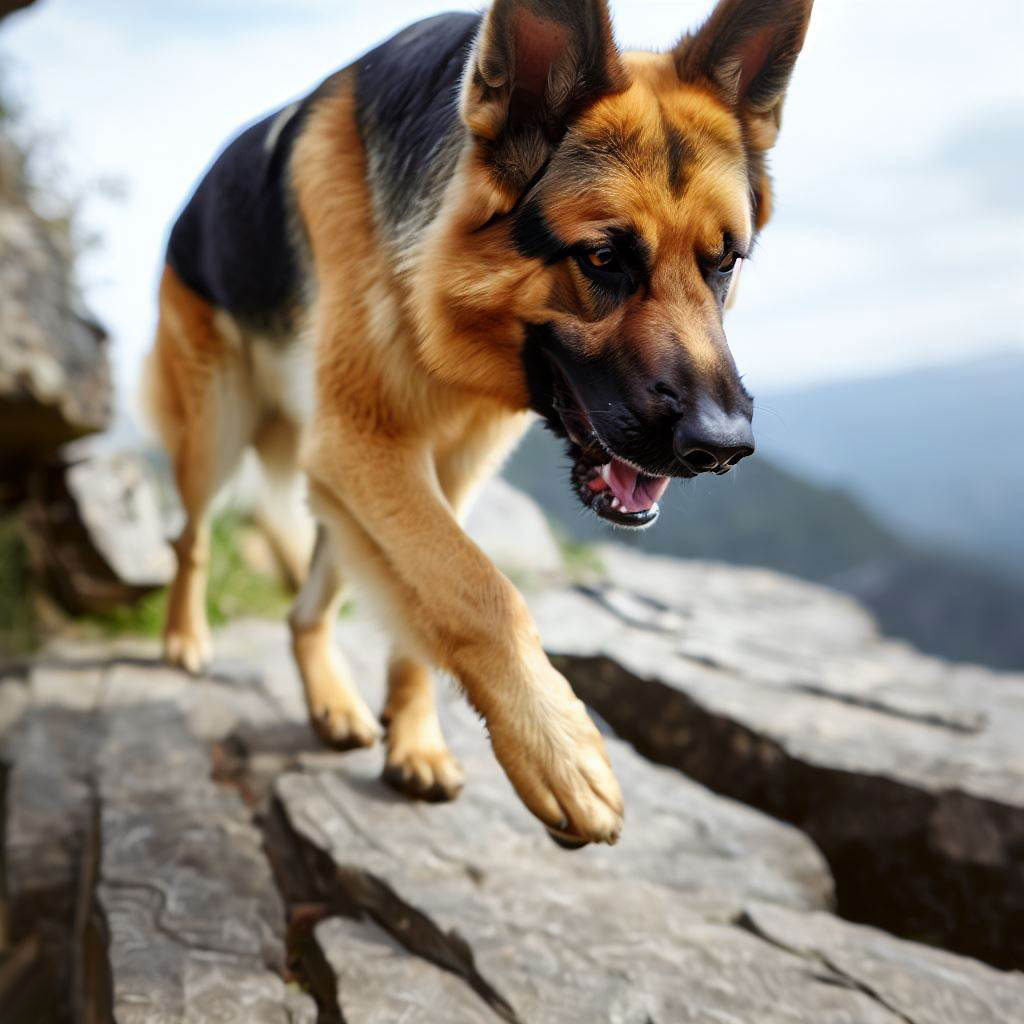
Conclusion: Best Dogs For Hiking
Throughout this guide, we’ve explored the critical elements of hiking with your four-legged companion. From identifying the characteristics that make the best hiking dogs, such as endurance and trainability, to understanding the preparation, gear, and safety measures, we’ve laid a comprehensive foundation for a successful adventure.
The insights into the 13 best dogs for hiking, including breeds from Labrador Retrievers to Vizslas, and tips on training and characteristics, offer a wealth of information to help you make the right choice for your hiking partner.
We’ve also delved into the essential gear and supplies, such as proper leashes, harnesses, food and water containers, and a first aid kit. The guidelines on hiking safety and etiquette emphasize the importance of following trail rules, dealing with wildlife, environmental considerations, and emergency procedures.
Encouragement for Responsible Hiking with Dogs
Choosing the best dogs is just the beginning. Your responsibility as a dog owner extends to ensuring that you adhere to trail rules and respect both the natural environment and other hikers. It’s essential to understand that even the best dogs for hiking must be guided with a compassionate and knowledgeable hand.
By being mindful of the terrain, weather, your dog’s health, and other hikers, you can create a fulfilling and enjoyable experience for both you and your dog. Remember, responsible hiking practices reflect well not only on you but on the broader community of dog lovers.
FAQs: Best Dogs Breeds For Hiking
What makes a dog breed suitable for hiking?
When evaluating the best dogs for hiking, several factors come into play, including stamina, size, trainability, and temperament. The dog’s physical abilities and a willingness to learn are essential for a successful hiking companion. Breeds like the Labrador Retriever and the Australian Shepherd are considered among the best dogs for hiking due to these characteristics.
How can I train my dog for hiking?
Training your dog for hiking involves a gradual approach. Start with basic obedience and leash training. Then, slowly introduce your dog to different terrains and increase the distance of your hikes. Positive reinforcement is vital, and using appropriate gear designed for hiking can make the process smoother.
Are there specific health concerns for hiking dogs?
Yes, hiking dogs can be prone to issues such as paw pad injuries, overheating, and exhaustion. Regular veterinary check-ups, using proper footwear, and monitoring your dog’s condition during the hike can mitigate these concerns. Selecting the best dogs for hiking and keeping them well-trained and equipped also plays a crucial role in their health.
Can puppies go hiking?
Puppies can go hiking, but special care is needed. Their bones and joints are still developing, so short and gentle hikes are best. As the puppy grows and builds stamina, gradually longer and more strenuous hikes can be introduced.
What should I do if my dog is tired on the trail?
If your dog shows signs of fatigue, it’s essential to take frequent breaks, provide water, and assess if you should turn back. Even the best dogs for hiking can get tired, and it’s your responsibility to ensure their well-being.
How do I keep my dog hydrated during a hike?
Carrying enough fresh water and a collapsible water bowl is vital for keeping your dog hydrated. Offering water at regular intervals and monitoring your dog for signs of dehydration will ensure a safe and enjoyable hike.
Is it safe to hike with a small dog?
Small dogs can be excellent hiking companions if properly trained and cared for. While they may not match the stamina of some of the best dogs for hiking, with proper planning and consideration for their specific needs, they can be delightful trail partners.
How can I find dog-friendly trails?
Many websites and apps specialize in identifying dog-friendly trails. Additionally, local hiking groups and pet stores often have information on trails that welcome dogs.
What if my dog doesn’t belong to any of the 13 best breeds for hiking?
While certain breeds are considered the best dogs for hiking, many other breeds and mixed-breed dogs can make excellent hiking companions. Focus on your dog’s individual characteristics, provide proper training, and consider its specific needs for a successful hiking experience.
What are some emergency tips if something goes wrong on the trail?
Always carry a dog-specific first aid kit and know how to use it. If an emergency arises, remain calm, assess the situation, and seek professional help if needed. Having the contact information for the nearest veterinarian can be vital.
What dog can hike the longest?
Breeds known for endurance, like the Siberian Husky and Alaskan Malamute, can hike for extended distances. These breeds are often considered among the best dogs for hiking long distances.
Which dog is best for mountains?
Mountainous terrains suit breeds like the Bernese Mountain Dog and the Rhodesian Ridgeback. Their strength and adaptability make them excellent choices for mountain trails.
What is the best dog for rock climbing?
Agile and confident breeds such as the Australian Shepherd and the Belgian Malinois are considered great choices for rock climbing.
Are Kelpies good for hiking?
Kelpies can be good for hiking as they are highly energetic and trainable. However, their specific needs and characteristics must be considered.
Can dogs walk 10km?
Many adult dogs, especially those considered the best dogs for hiking, can walk 10km with proper training and conditioning.
Is hiking hard on dogs?
Hiking can be hard on dogs if not properly prepared. Selecting suitable breeds, proper training, and appropriate care can make hiking a rewarding activity for your dog.
Is a 2 hour walk too long for a dog?
The appropriate walk length depends on the dog’s breed, age, health, and the terrain. For many of the best dogs for hiking, a 2-hour walk can be manageable and enjoyable.
Is 1 hour walk a day enough for a dog?
An hour’s walk can be enough for many dogs, but the specific needs vary based on factors like breed, age, and individual energy levels.
Is 2km a good walk for a dog?
For many dogs, a 2km walk is a reasonable and enjoyable distance, especially for regular exercise.
Should I leash my dog while hiking?
Most trails require dogs to be leashed. Using a leash ensures your dog’s safety and respects other trail users.
Should I feed my dog while hiking?
Feeding your dog small, easily digestible meals or snacks during hiking can provide sustained energy. Be mindful of the amount and type of food.
Should I bathe my dog after a hike?
Yes it’s a good idea, bathing your dog after a hike can help remove dirt and potential allergens, keeping your pet clean and comfortable.
Best hiking dogs that don’t shed?
The Standard Poodle and the Portuguese Water Dog are great for hiking and tend to shed very little.
Best Hypoallergenic hiking dogs?
Hypoallergenic breeds such as the Poodle and the Schnauzer can make excellent hiking companions.
What are some small dogs that like long walks?
The Jack Russell Terrier and Dachshund are small breeds known for enjoying long walks and hikes.
What are the worst dogs for hiking?
Breeds with flat faces like Bulldogs or those with very short legs may struggle with strenuous hiking.
What are the best dogs for camping and hiking?
Labrador Retrievers, Australian Shepherds, and Golden Retrievers are all excellent for both camping and hiking.
What is a good dog to take hiking?
The German Shepherd is a popular choice due to its intelligence, endurance, and loyalty.
What dog can hike the longest?
Breeds with great stamina such as the Siberian Husky or Alaskan Malamute are known for hiking long distances.
Can my dog do a 7-mile hike?
Many medium to large breeds can handle a 7-mile hike with proper training and conditioning.
What dogs can climb mountains?
Mountain breeds like the Bernese Mountain Dog and the Saint Bernard are well-suited for climbing.
Where can I get more information on hiking dogs?
Trusted pet websites, outdoor stores, and speaking with a knowledgeable veterinarian or professional dog trainer can offer more info on hiking with dogs.
What top dogs can go backpacking?
Breeds like the Rhodesian Ridgeback, Border Collie, and Labrador Retriever are great backpacking companions.
Are Terriers good for hiking?
Many Terriers are energetic and enjoy outdoor activities like hiking, though they may require close supervision.
What dogs are good for running and hiking?
Breeds known for both running and hiking include the Vizsla, Australian Shepherd, and the Labrador Retriever.
Can you take a hiking dog fly-fishing and stay in a one-person tent?
Yes, you can take a hiking dog fly fishing, provided the dog is well-trained and comfortable around water. When staying in a one or two person tent, space might be a constraint, especially with larger dog breeds. It would be best to choose a dog that’s comfortable in close quarters and accustomed to outdoor sleeping arrangements, or consider a larger tent to accommodate both you and your dog comfortably.
